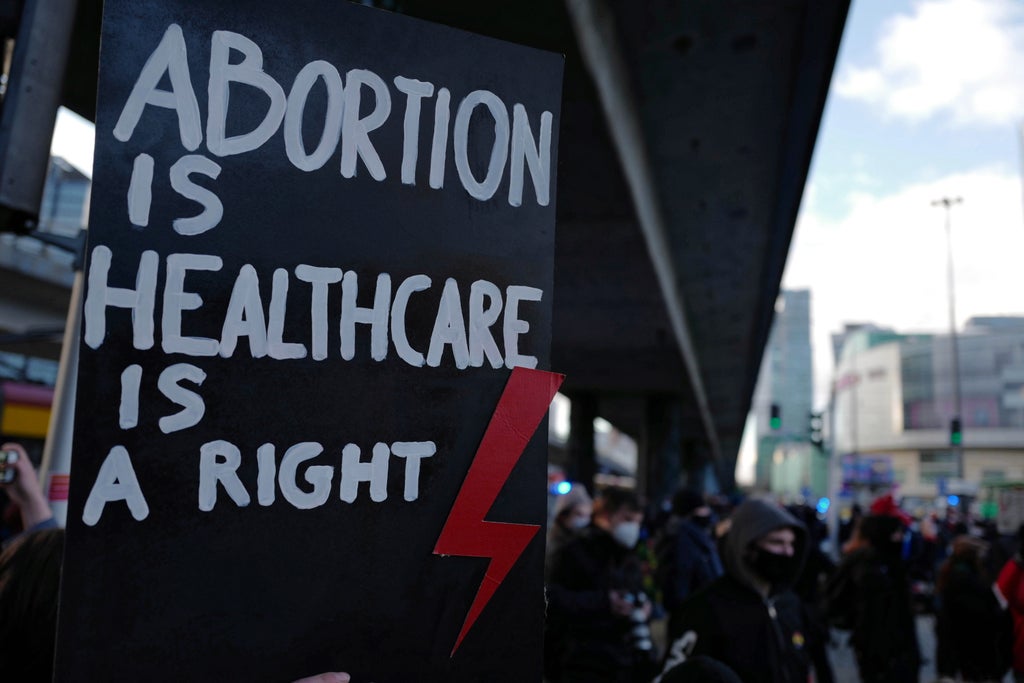
A pro-choice activist from Poland will become the first in the country to face trial after being charged for violating the country’s strict abortion laws.
If Justyna Wydrzyńska is found guilty after the trial that begins on 8 April, she could face up to three years in prison.
Ms Wydrzyńska is charged with illegally aiding an abortion because she helped a domestic abuse survivor obtain miscarriage-inducing pills in February 2020.
Ms Wydrzyńska, 47, is the co-founder of the Polish pro-choice group Aborcyjny Dream Team (ADT) and is the mother of three.
She has been free from an abusive partner for over 10 years, according to the ADT website that mentioned that “thanks to the termination of her fourth pregnancy, she found the strength to break away from her toxic husband and the motivation to take care of herself and her children.”
Two years ago, a woman named Ania had written to Ms Wydrzyńska and told her that she had tried to go to an abortion clinic, but her husband had prevented her from leaving.
The ADT said Ania was “still living in the middle of this hell. She was terrified: the twelfth week of pregnancy was approaching, and the trip abroad was unsuccessful”.
The pandemic had started and the postal service was not working. “No one knew how much time would be [spent] waiting for the kit ordered from Women Help Women,” said the website, referring to the global pro-choice nonprofit that advocates for abortion access.
Ms Wydrzyńska has been accused of helping with an abortion for deciding to give Ania the abortion pills directly on February 2020, for which she will stand trial.
ADT usually refers women seeking abortions to organisations based abroad where abortion pills can be legally obtained and sent to the women and helping the organisation evade evade accusations of breaking the law.
Poland’s postal service had then announced that international postage might be suspended or stopped due to the pandemic. “We were running out of time,” Ms Wydrzyńska told The Guardian newspaper.
Ania’s husband had called the police after the woman had received the medicine. The police confiscated the medicine from her.
The stress of the police investigation led to a miscarriage, said reports.
In January 2021, Poland’s Constitutional Tribunal banned access to abortion in almost all circumstances.
Amnesty International, in a report released a year after the tribunal’s decision, said “the ruling has increased the extreme barriers women seeking access to abortion face and has had tragic consequences for many of them and their families”.
ADT started a multilingual online campaign to bring attention to the “unprecedented” case, using the hashtag #IamJustyna to help increase solidarity among women and to raise awareness over the trial.
The pro-choice organisation has said that its position will not change: “We will do it because it is fair and necessary. Anyone who needs an abortion should have access to it without having to get into debt, without shame and without apologising.”
One of Ms Wydrzyńska’s friends was quoted in the online campaign as saying: “Women like Justyna are the last guarantee of a safe abortion in Poland. They should be protected, not prosecuted. Is it the intention of the prosecution for women to be afraid of being pregnant or that they would be afraid that they would not be able to rely on themselves?”
ADT has also claimed 34,000 people received support in safe abortion, while 1,544 people left for the procedure in the second trimester since the 2021 tribunal judgment.
In Poland, abortion is only permitted in situations where the pregnant woman faces a risk to her life or health or if a pregnancy is the result of rape or incest.
In practice, it is said to be nearly impossible to get an abortion in the country, with Amnesty stating that Poland has one of Europe’s most restrictive abortion laws.
It is the only EU member, apart from Malta, that has not legalised abortion.







